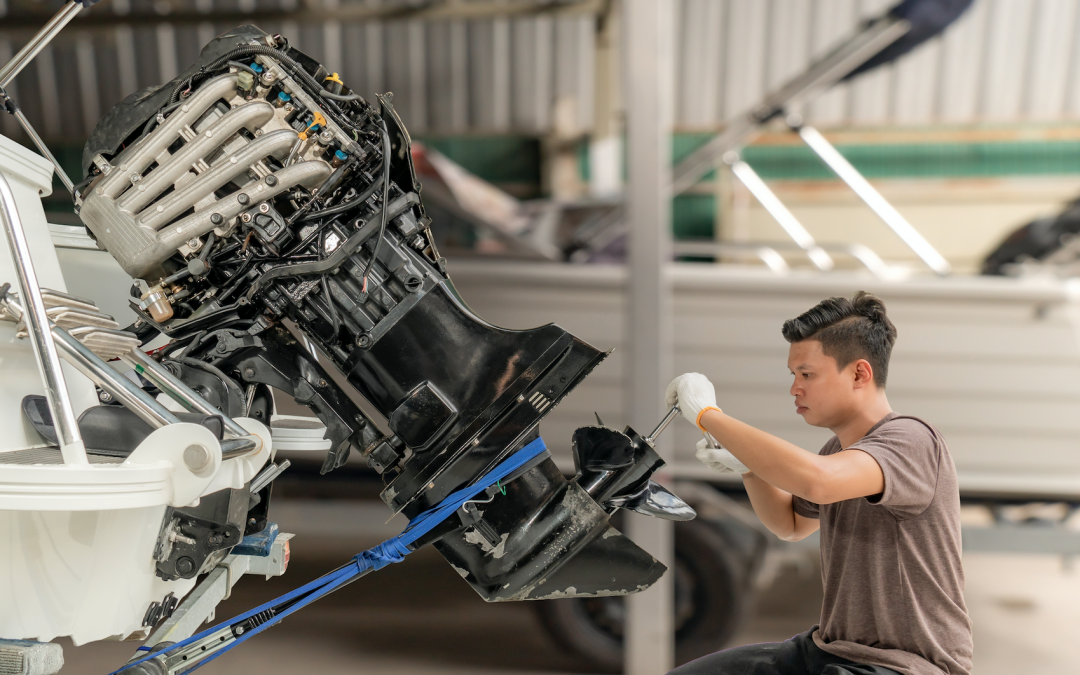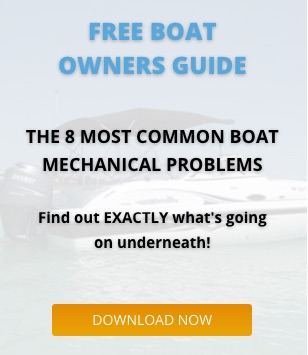It is not rocket science to look after your boat, but it does take a bit of work and staying on top things, at all times. The general rule of thumb is that you will spend 10% of the value of your boat keeping up routine maintenance. Then again, that 10% can prevent costly major repairs later on due to neglect.
There is a lot to be said about DIY checks and maintenance. We compiled a list for you to do and a list for you to leave to us.
So, what to do yourself?
Rinse and clean; It is essential that you rinse your vessel after every use and wash down with a PH-neural biodegradable boat wash. Also, a splash of vinegar in the wash bucket, will cut through the salt and even remove mould. A tip worth trying!
Also, regular cleaning of the vessel doesn’t only prevent and stop mildew but gives you a good opportunity to inspect your boat.
Oil and coolant, leaks and debris; This is one of the most important things to do to avoid seeing us too often. Start from the engine room, make sure you know your ideal coolant and oil levels and maintain those levels. Next, look for any leaks and check your sea strainer for debris. Start your boat at least every two weeks if you have not been able to take it out on the water. This way water will be flowing around your engine and minimises corrosion and keeps engine internals coated in oil to prevent surface corrosion in a moist environment.
Safety gear; If you need to use your safety gear, you do not have time to look for it nor do you need any surprises. Make sure none of your safety gear has expired and that it is appropriately located.
Engine, bilge and battery; Keep your engine room and bilges dry and clean and it will be easy to spot any service requirement issues, such as oil, fuel and belt dust. Early detection will make dealing with a problem quicker and cheaper. And if you do find water in your hull, taste it if you can. This will help you determine where the water is coming from. Make sure your bilge pump and emergency float switches operate smoothly and that your boat’s battery is charged, check the shore power is plugged in and the battery charger is operational.
Also, when filling your boat’s water tanks, remember to run the hose for a few minutes to get rid of any bacteria build up in the hose. (Hoses sitting in the sun often grow bacteria.)
For diesel owners, if you’re not using your vessel for a period of time, it’s worth dosing your tanks with a fuel stabilizer or conditioner. Fuel set or Fuel doctor are some of the products worth considering. This prevents diesel bug and breaks up moisture into fine particles.
For the petrol owners, steer away from ethanol-based, unleaded petrol as this is moisture absorbent. This type is also not user friendly to fuel lines, fuel pumps, injectors etc.
Trailer; If you have a trailer boat, ensure the bungs are out, vessel’s bow elevated, the trailer wheel bearings are smooth in operation and the trailer lights are operational.
And what to leave for the professionals?
Annual/Regular Service; You must leave this to the professionals and all you need to do is to book your boat it. How often you get this done depends on how you use your boat; either every 100 hours of usage or at least once a year. While your regular DIY checks and maintenance spot many problems and faults, a regular service fix these faults, identifies related issues and anticipates future maintenance and repairs.
We keep on talking about the importance of regular, annual servicing but it is only because it keeps your boat’s propulsion running smoothly, keeps you and your family safe and saves you money in the long run.
Under the hull; The underside of your hull is something that the professionals tend to see more than you do. While it requires specialised products and access and as such needs professionals to work on it, you should keep your eye on the situation as well. And remember, marine organisms grow on the bottom of your hull no matter what but at an even higher rate if you don’t use your boat regularly!
When us professionals work on the bottom of your boat, we also attend to all the underwater fittings.
Plumbing and Toilets; Plumbing is something you leave to the professionals in your house and you should do the same in your boat. If things go wrong with plumbing and sewage, the damage can be considerable. Trust us, you do not want this!
Detailing; Many aspects of detailing can be found and dealt with regular cleaning and rinse. Saying this, certain detailing will require specialised products and applications and to try that yourself, might make the matter worse.
AC Power; Do not touch anything with AC power. This is one of the most important things you MUST leave to the professionals. If in doubt, give us a call!
Whether you are an experienced boat owner or have just purchased your first vessel, we encourage you yo get to know your boat and get involved. Looking after your boat and getting to know it gives you valuable knowledge of the boat. Then again, know when to give us a call for the sake of your boat and your personal safety as well as your wallet. Get in touch with us at any time if you are unsure, in doubt or just simply need a professional opinion.



